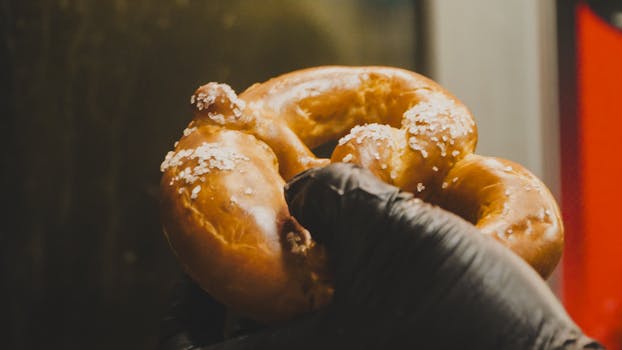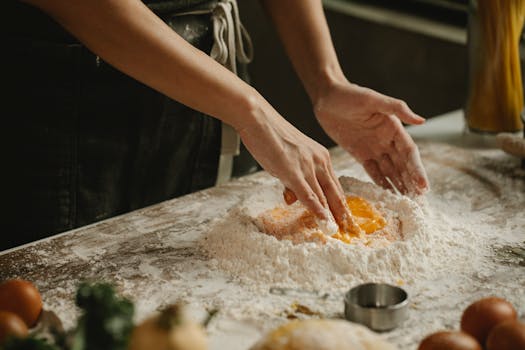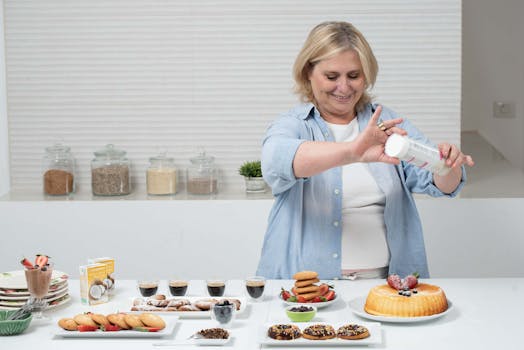You can do a college course, for example:
- hospitality and catering
- bakery
- professional bakery
Entry requirements
Entry requirements for these courses vary.
Bakers in the UK prepare and bake various types of bread, pastries, cakes, and other baked goods. The role can be found in artisan bakeries, supermarkets, hotels, restaurants, and large industrial bakeries. Typical tasks include weighing and mixing ingredients, shaping dough, monitoring baking times and temperatures, and decorating finished products. Bakers must follow strict hygiene and safety standards, and may also deal directly with customers, especially in smaller shops. The career suits those with good attention to detail, creativity, and the ability to work well under pressure, particularly during busy periods like holidays or weekends.

In the UK, bakers typically earn between £16,000 and £25,000 per year, with experienced bakers or bakery managers earning up to £30,000 or more.
There are over 35,000 people employed as bakers in the UK, with job opportunities in both small independent bakeries and large commercial operations.
Bakers often start work very early, with shifts commonly beginning around 4am or 5am, and may include weekends and public holidays.

Specialises in handcrafting a variety of breads using traditional methods and high-quality ingredients, often working in independent bakeries or artisanal bakeries.

Creates fine pastries, cakes, tarts and desserts, typically working in patisseries, hotels or high-end restaurants.

Focuses on designing and decorating cakes for special occasions such as weddings, birthdays and celebrations, using techniques like icing, fondant and sugarcraft.
Finish your GCSEs, focusing on subjects like English, Maths, and Food Technology if available.
Having at least a few GCSEs, especially in English and Maths, will help you meet basic entry requirements for further study or apprenticeships. Food Technology or similar subjects can give you an early insight into food preparation and safety standards.
Start baking at home to practise fundamental techniques and build confidence in the kitchen.
Try out simple recipes for bread, cakes, and pastries, and experiment with different ingredients and methods. Document your progress, perhaps in a baking journal or blog, which can also serve as a portfolio when applying for jobs or courses.
Apply for an apprenticeship or a relevant college course such as NVQ Level 2 in Bakery or a Level 2 Diploma in Professional Bakery.
Apprenticeships offer hands-on experience alongside classroom learning, while college courses provide structured training in baking techniques, food hygiene, and health and safety. Both routes are respected in the industry and open to those aged 16 and above.
Complete a recognised food safety and hygiene course, which is often required in professional kitchens.
Courses such as the Level 2 Food Safety and Hygiene for Catering can be taken online or in person. This qualification demonstrates your understanding of safe food handling, an essential requirement for working as a baker.
Apply for entry-level positions such as bakery assistant, trainee baker, or commis baker in local bakeries or supermarkets.
Gaining practical experience is crucial for developing your skills and understanding the day-to-day responsibilities of a baker. Look for part-time roles, internships, or volunteering opportunities to build your CV and make industry connections.
After gaining experience, consider specialising in areas such as artisan breads, patisserie, or cake decoration, or pursue a senior baker or bakery manager role.
You can take additional courses in specialised baking, attend workshops, and enter baking competitions to further hone your skills. With experience, you may also consider opening your own bakery or working as a freelance baker.
Explore relevant apprenticeships that can help you kickstart your career in Baker. Apprenticeships offer hands-on experience and training while earning a wage.
This page showcases various career options and the pathways to reach them. Each career listed here shares transferable skills and knowledge, making it easier for individuals to transition between them.
Your current career is highlighted to help you see how it fits into the broader landscape of potential career choices. By clicking on any career, you can learn more about it, including the training and education required to pursue it.
Remember, progressing in your career often involves further learning and training. This page provides insights into future career options as well as those that can lead up to your current one.
These career progression decisions are informed by comparing the skills and knowledge needed for different occupations, along with data on how people move between them. Explore the possibilities and discover the exciting journey ahead in your career!
You can get into this job through:
You can do a college course, for example:
Entry requirements for these courses vary.
You could begin your career by applying to do an apprenticeship, such as:
These can take around 2 years to complete.
You'll usually need:
You may be able to start as a trainee or assistant in a bakery shop, supermarket or food production plant, and work your way up through training on the job.
You can find out more about working in the baking industry from Tasty Careers and the Federation of Bakers.
Explore other careers or use our AI to discover personalised paths based on your interests.
Address
Developing Experts Limited
Exchange Street Buildings
35-37 Exchange Street
Norwich
NR2 1DP
UK
Phone
01603 273515
Email
[email protected]
Copyright 2026 Developing Experts, All rights reserved.
Unlock expert-designed lessons, resources, and assessments tailored for educators. No credit card required.
Claim Your Free Trial →